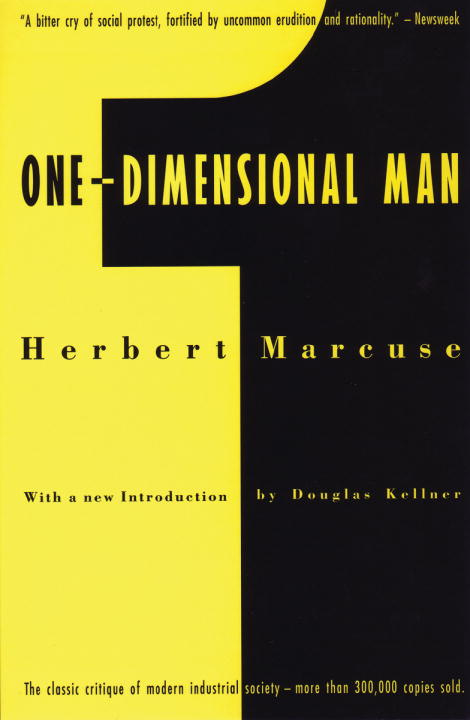Herbert Marcuse and Kamala Harris, and the Chomsky paradox
Perhaps the term “Chomsky paradox” has not yet made it into mainstream circulation. The paradox is rather simple. In 1988, Chomsky wrote a definitive and excellent account of how corporate media is not to be trusted. Yet he himself continues to draw on the same sources he ridicules to prove his points. He calls himself a “fanatic,” noting how he devours copious amounts of propaganda knowledge daily. He has MIT research assistants file away the very manufactured content he decries.
Of course, he believes he has wherewithal to see through the lies while nonetheless ingesting the full brunt of corporate media propaganda. Chomsky, remember, won’t go near “conspiracy theory,” i.e. the “alt-media” that breeds beyond the confines of respectable publication houses and university presses. Chomsky takes in only mainstream propaganda reportage and yet finds ways and means to cast down his dominant and superior scholar’s eye view.
I suppose this is a viable strategy, but it is one of pure luxury which cannot be imitated by the masses; I for one feel that for those who lack the time and inclination to “fanatically” pore through mainstream publications, a more efficient and germane approach is to turn immediately to alt-news and conspiracy sites. I’ve written before how I believe “conspiracy theory” is equivalent to proletarian truth.
Herbert Marcuse wrote a magisterial account of how domination is built into language. Not so much the language itself but the way we speak it. Corporate-speak, in its very essence, might be boiled down to micro-editorializing. That is, the two dimensions of speech we all take for granted are the everyday coordinates of an effective sentence. Subject + predicate are as fundamental to our understanding of the world as space and time.
Subject usually means speaker, but mostly means a thing, a noun. The predicate is everything else (verbs, adverbs, adverbials, adjectives, prepositions). You need not worry about parsing sentences to make sense of Marcuse. You just need to begin with the simplest sentence: I am. I + am, which is subject + predicate.
Marcuse notes in 1964 the sudden appearance of hyphenated phrases, such as the following seemingly innocuous description, the sort that leads many news articles:
“Georgia's high-handed, low-browed governor . . .”
It matters not who the governor is but the way we brand or talk about people. The editorializing is already implicit within the seeming “objective” description. We are given insight not simply to the person’s name and function, but even the manner in which those functions are supposedly carried out. “[L]ow-browed” suggests impropriety as does “high-handed.” This is particularly salient for how any non-Western leader is described in the press. “Authoritarian strongman Hugo Chavez,” for example, or “Supreme leader President Xi.”
Use of the hyphenized abridgment is widespread. For example, "brush-browed" Teller, the "father of the H-bomb," "bull-shouldered missileman von Braun," "science-military dinner"' and the "nuclear-powered, ballistic-missile-firing" submarine. Such constructions are, perhaps not accidentally, particularly frequent in phrases joining technology, politics, and the military. Terms designating quite different spheres or qualities are forced together into a solid, overpowering whole.
So this tendency in language applies to objects as well as people. A phrase like “smart bomb” implies a contradiction. Not because bombs are dumb, but because “smart” suggests the bomb operates under the beneficial auspices of improved technology which mitigates the unnecessary loss of civilian/innocent life. Branding precision guided bombs or missiles as “smart” makes us feel good, or at least better, about an outcome which is necessarily “not smart” in any case—if we take death itself, that is, as indicative of what a “smart bomb” is designed to avoid. But the whole purpose of a bomb is to inflict death.
The separation here between subject (bomb) + predicate (smart) is difficult to distinguish. In fact, what we have is the blending of function and object together, objective fact + editorializing, which presents itself as combined truth. Meaning we would not know how to react to the object in front of our face without said editorializing. We look for and depend on this editorializing to know what we are in fact dealing with. No one asks, “What do you think of a bomb being called smart?,” separating the object from predicate thus allowing you to judge the validity of the juxtaposition. Instead, they say, “What do you think of smart bombs?”, imposing a sexier, and perhaps even more humane way of fighting wars at the outset—even though all we have done is invent a new weapon, which is in itself bad.
Subject and predicate exist in two separate dimensions. Linguistically, we are blending these two dimensions of thought into a single dimension. This means we are robbed of opportunity to decide for ourselves. In our first encounter with the object in question is already imposed the way we are supposed to think about it.
The idea being that if you are introduced to a thing or a person, you begin, naturally, by reserving judgement. Someone introduces “Bob” to you. You have no preconceptions about Bob. But nowadays, this isn’t good enough. You have to say, “This is my good friend Bob,” or this is “Studious Bob.” Lacking any qualifying predicate, the single subject uttered alone makes no sense.
If I tell you the name of a leader of some remote island country in the South Pacific, not only do you have no opinion of this man (or woman), you have no ability to imagine who he is outside of his function. Rather than decide for yourself, you expect some manner of editorializing to follow so you know where in your worldview to place him.
If I say, “this is the tough and pragmatic leader of COUNTRY X,” you now have a bit of anchorage. I could say conversely, “this is the fanciful and uninhibited leader of COUNTRY X.” In both cases, predication is meant to erase the space between two dimensions to present you with a single, unifying, set of coordinates. This, says Marcuse, is a type of tyranny. Ideally, our perceptions of the world take hold across two dimensions, and we make judgements accordingly. But now, we live in a one-dimensional universe. Language acts as a type of hypnosis.
Cut to Kamala Harris. Remember when she was extremely “unlikeable” and “unelectable”? Yet overnight, she has been rebranded with all sorts of new predicates. Nor am I saying the previous ones were true and the new ones false. I’m saying that even if you yourself believe you “don’t like” Kamala, that she is a “turn-off,” you were given these coordinates just as people out there are being given new coordinates now. There is no, and never has been, any unmediated access to Kamala Harris herself as a person. There is no vantage point from which you yourself are able to decide.
You think you see her “cackle” on television and are immediately turned off. But the reality is that the “cackle” itself has been played up, shown to you on television, so that your opinion of her is a result of the editorializing you have been given, whereas you believe you have the “freedom” to decide for yourself just what you think of her. I am saying you have never had that freedom. Not when she was branded unelectable and not now when she is being branded totally electable. You cannot possibly know what you really think of Kamala Harris.
Another example is the truism (endlessly repeated) that Donald Trump “shouts down” at people and routinely “screams at the top of his lungs.” I have never once seen Donald Trump raise his voice. Have you? This is true whether you like Donald Trump or hate him. The image you have of him as someone who shrieks and hollers is pure fabrication. Yet you are probably hard-pressed to discard this as the canard it so obviously is.
This explains perfectly how people can and will change on a dime from claiming Kamala is “unpopular” and “unelectable” to now being an American “hero.” They believe they are making a conscious decision about the matter. They cannot see that they are taking cues from a propaganda machine that tyrannically controls predication. They cannot see they are under hypnosis.
Marcuse’s analysis also applies perfectly to people who can watch footage of Building 7 collapsing at freefall speed but are unable to offer up any editorializing of their own. The subject (911) only makes sense with given predicates (terrorist hijackers flying planes into the Twin Towers) because these are the coordinates they have been fed.
One-dimensional man is impervious to creating his own two-dimensional reality, meaning also, that if the media decided next week to start telling the world that 911 actually was a controlled demolition, it would take no time at all to convince everyone. Nor would it mean that people have suddenly “awakened” to the truth; rather they have just fallen into another slumber. In one-dimensional society, truth only prevails if people are fed it. The tyranny Marcuse is diagnosing is precisely this one: with no cultivated ability to describe the world or our impressions of it by ourselves, even the “truth” cannot save us. It can only be imposed on us.
Conspiracy sites are thus the only place you can go to take a breath in the second dimension. Everything everywhere else is manufactured.





